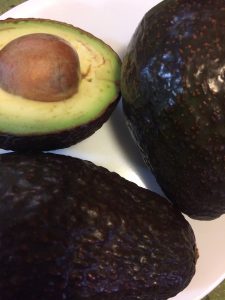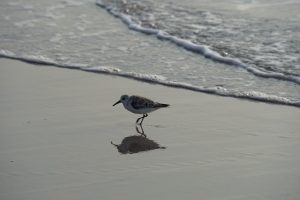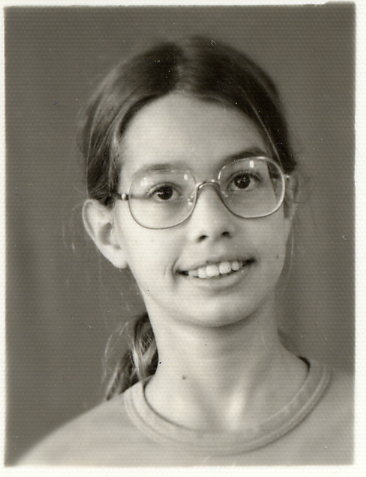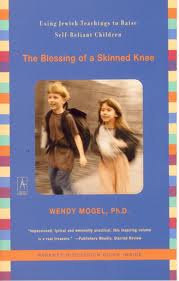S ome time ago, Dar and I tried a new sushi restaurant in town. Our sushi requirements vary considerably: Dar prefers rolls made out of strange sea life: clams, sea snails, and octopus, while I gravitate to faceless land life, such as cucumber, carrots, and avocado. In this case, while we were adventurous in trying a new restaurant, we stuck to our usual ordering routine. Dar ordered a tako sunomono salad, while I ordered an avocado sushi roll. What we got, however, was far from the safe choices we thought we made. Dar’s tako sunomono had disappointingly-little tako and a whole giant pile of sliced cucumber. My avocado sushi had so much avocado dripping from it, that it could more accurately be described as sliced avocado than a sushi roll.
ome time ago, Dar and I tried a new sushi restaurant in town. Our sushi requirements vary considerably: Dar prefers rolls made out of strange sea life: clams, sea snails, and octopus, while I gravitate to faceless land life, such as cucumber, carrots, and avocado. In this case, while we were adventurous in trying a new restaurant, we stuck to our usual ordering routine. Dar ordered a tako sunomono salad, while I ordered an avocado sushi roll. What we got, however, was far from the safe choices we thought we made. Dar’s tako sunomono had disappointingly-little tako and a whole giant pile of sliced cucumber. My avocado sushi had so much avocado dripping from it, that it could more accurately be described as sliced avocado than a sushi roll.
Sushi takes finesse, balance, delicacy. Even the simplest roll could become inedible by a heavy-handed, inexperienced, or overzealous chef. No wonder becoming a chef is such an arduous process of schooling and on-the-job training. Whether it’s too much avocado, too little avocado, a rotten, stinky avocado, or whatever quality of rice, a sushi chef must tread a fine line in making his or her creations.
In contrast to sushi chefs (who at least get paid for their efforts and who will, in fact, receive compliments when they make an especially yummy roll), parents must walk the fine line of how much avocado to put in a roll without job-specific training or schooling and certainly without ever receiving any positive feedback (except, perhaps, after the children turn the ripe age of forty-five). I am referring, of course, not to making sushi for our kids, but to our efforts to bring them up in the way least damaging to their self-esteem, capabilities, potential, well-being and more. We cook for them, drive them around, help them with their homework, encourage them, pick them up when they fall, and stay up late at night if they have the stomach flu and are throwing up all over the floor. And yet somehow, no matter how much we try, the fine line of how much avocado to put in the sushi roll eludes us. Making the perfect son-or-daughter roll seem as far away as one of Pluto’s moons. Or more.
Raising children, we could argue, is much more complicated than making sushi. For one thing, those darn kids keep changing on us in ways that avocado does not. Things that worked well when they were three are useless by the time they’re seventeen, or arguably, even by the time they turn five. Learning the skills needed to deal with the issues they bring home, whether it be limit-setting, bedtime, homework, interest in boys, getting the first period, drinking alcohol, or learning how to drive, is a constant race against the clock. Before we’re experts in one thing, the kids have already “been there, done that,” and are on to something completely new which we couldn’t have imagined if we tried. We never become experts, instead constantly finding ourselves face-to-face with the limitations of our own knowledge and experience.
Being parents is the hardest job in the world. Sure, there’s moments of gratitude, joy, and satisfaction, but if anyone tells you they never experience the humbling sensation of truly not knowing what to do, well, they’re probably just not paying enough attention… or else, they’re using the well-known and oft-used tool of bluffing their way through it all. We have to bluff once in a while as parents, you know, because just imagine if the kids knew how little we know.
I’ve been thinking about this avocado-sushi dilemma lately, noticing my see-sawing attempts between too much, too little, overripe, and raw to parent my teenagers who are growing (and surprising me constantly) by leaps and bounds. This morning, for example, a grumpy teen rejected the waffle breakfast which she requested specifically last night. Dar has been telling me for weeks now to stop making them breakfast, and yet my desire to please the kids is nearly impossible to overcome. Waffle breakfast turned out to be too much avocado. In contrast, my son who just turned seventeen, told me he did not want to celebrate his birthday this year. I therefore did not put up decorations in the house. No decorations turned out to be too little avocado. But without hardly ever receiving compliments when I do a good job, and always heaps of complaining, how do I even know when I’ve made the perfect roll?
Are we back where we started, with an inedible roll, with an imbalanced, guilt-or-resentment-induced parenting style, or just worried that we’re messing up our kids so badly that we need to start saving for that psychiatrist fund?
I hope not. And in fact, I would like to suggest a different perspective, one that is possibly less concerned with results and feedback and more with faith, trust, and kindness: the mindfulness approach. In the mindfulness approach, how much avocado we put on the roll is not the main issue. Instead, we focus on what it feels like to have put too much or too little avocado (or the wrong kind of avocado altogether) on. Whenever we don’t know what to do, or feel we’re doing it all wrong, we pause and focus on what thoughts and emotions come up, and rather than push the avocado (or situation) away, yell at the waiter and the chef, and stomp back home to write an angry review, we stay with the frustration, anger, sorrow, fear or whatever comes up. The mindfulness approach is not about doing or fixing, but about being. Being with all these difficult feelings and thoughts, our wishes to be better, to do better, our love for our kids, and our desire to be good parents (or at least better than our own). The mindfulness approach isn’t mistake-centered, but kindness-centered. It acknowledges how hard it is to get it right, it stresses the intention, the effort, and what is present in, well… the Present. And it always allows you to start back again from scratch.
Every day is a new day, in the mindfulness approach.
So try this next time you’re frustrated by the kids, or yelled at them, or behaved in any of the multitude of ways that you promised yourself you would never do again:
Stop (that’s already a big step).
Take a few breaths (at least three or five).
Observe what’s happening in your body — are you contracted? overwhelmed with shame? is your belly tight? Is your mind sizzling with thoughts? Is the inner critic in the forefront? What sensations do you feel in your jaw, your eyes, your hands? And though this is really hard, try to stay with these sensations. It is difficult to be with all this, with the contraction, the shame, regret, sadness, anger. Really hard. But stay with the feelings for as long as you can, and remind yourself that you are not to blame. Parenting is objectively hard, and it is normal and natural for these feelings and thoughts to come up. You are doing your best, and you are not alone. We’re all of us doing as best as we can. All us parents are struggling to stay afloat in this parenting pool of thick mud.
When you’ve noticed your heart is back to normal, or when you’re ready to continue, proceed with your life. Make the next son-or-daughter roll again, and again, and again, a million times, even if you’ll never get it just right. And continue to be kind to yourself. This parenting stuff sure is tough.
This practice, perhaps you noticed, has the acronym STOP: Stop, Take a few breaths, Observe your body sensations, feelings and thoughts, and Proceed. And it is, in fact, a practice. We do it again and again, and not in order to get the roll perfect. That is not the point. We do this until it is easier to notice how we feel, what we sense, and what we’re thinking, and then we continue to do it. We do this practice to develop kindness for ourselves, for our children, and for other parents who are suffering like us. We do this to gain some inner (rather than outer) peace, a little bit more perspective, and perhaps, one day when we’re really really old, a wisdom to be kind to our own kids when they too struggle with this parenting stuff.
***Many thanks to Sheri, from whom I learned this practice, and to Julie, who reminded me that breathing just once before observing is not enough.



 of my life, and yet it seems, ironically, that today I first realized just how near sighted I am. Till today, and despite boasting my own prescription of over eleven, I pegged my near sightedness an esthetic problem. Up to age eighteen, with an over-large pair of spectacles perched on my nose, I was the ugly duckling. I became more of a swan at eighteen after I was fitted with contact lenses. Today, however, struck with the lightning realization that my eyes are flawed, I understood for the first time that my poor vision is not just about beauty, but a body blot.
of my life, and yet it seems, ironically, that today I first realized just how near sighted I am. Till today, and despite boasting my own prescription of over eleven, I pegged my near sightedness an esthetic problem. Up to age eighteen, with an over-large pair of spectacles perched on my nose, I was the ugly duckling. I became more of a swan at eighteen after I was fitted with contact lenses. Today, however, struck with the lightning realization that my eyes are flawed, I understood for the first time that my poor vision is not just about beauty, but a body blot.